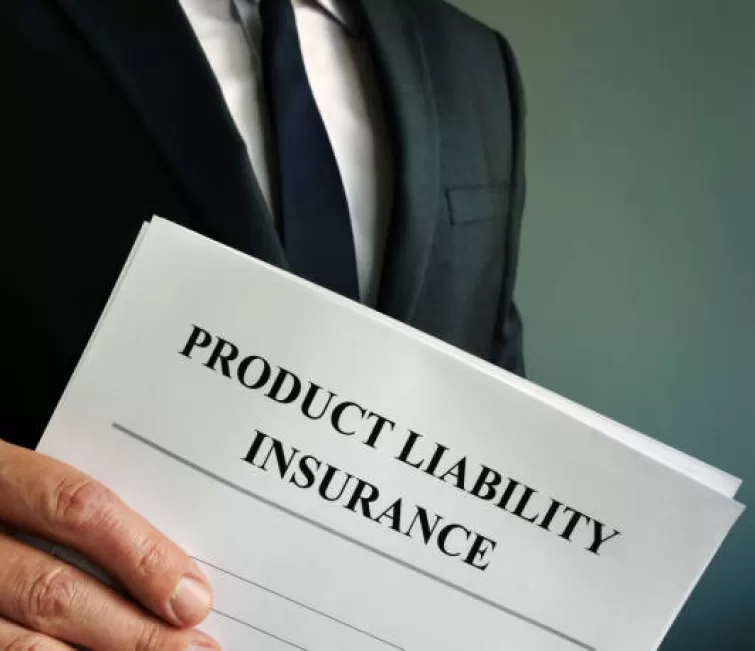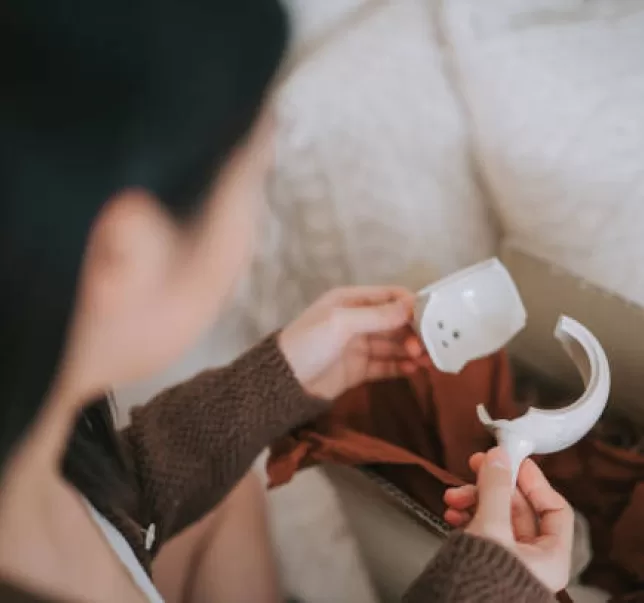Attorney:
Product Liability
DO I HAVE A CASE?
CONTACT US NOW
FREE CONSULTATION
What does “product liability” mean? Here’s a hypothetical scenario to show you:
In the hustle and bustle of a thriving city, Jane, a vibrant young professional, found herself a victim of a defective product that forever changed her life. She had always been cautious, but she never imagined her new hairdryer, a product of a reputed brand, would malfunction causing severe burns and injuries. The incident left her devastated, filled with questions and uncertainty about her future.
This is where Accident Medical Group steps in. With a staunch commitment to justice and a stellar record in product liability cases, they are the beacon Jane needs in this storm. They’re more than attorneys – they’re advocates who fight relentlessly for victims of product-related injuries. With their robust legal acumen, deep empathy, and relentless pursuit of justice, they help turn victims into victors, transforming stories of despair into tales of triumph.
What Floridians Should Know About Product Liability
In the sunshine state, it’s crucial to understand the complexities surrounding product liability. This knowledge can be the key to unlocking justice for those who have fallen prey to defective products. As consumers, we place our trust in the products we purchase, expecting them to enhance our lives, not endanger them. Sadly, it’s more common than you might think to encounter harmful or defective items. When these instances occur, it’s essential to know your rights and the legal remedies available. Let’s delve into some key points that every Floridian should be aware of when it comes to product liability.

Strict Liability
In the realm of product liability, Florida operates under a principle known as “strict liability.” This means that a plaintiff does not have to prove that a manufacturer was negligent in the making of a product. Instead, they must simply demonstrate that the product was defective and that the defect caused injury. This principle facilitates a victim’s path to compensation and justice.
Statute of Limitations
Another critical aspect to consider is the Statute of Limitations. In Florida, victims generally have four years from the date of injury to file a product liability claim. If a person fails to file within this time frame, their case could be dismissed, and they may lose the right to compensation.
Economic and Non-Economic Damages
Victims of defective products in Florida are entitled to two types of compensation: economic and non-economic damages. Economic damages include tangible costs such as medical bills, lost wages, and other out-of-pocket expenses. Non-economic damages are more subjective and compensate victims for intangible losses like pain and suffering, mental anguish, and loss of enjoyment of life.
Comparative Fault
Lastly, Florida follows a “pure comparative fault” rule. This means that if a person is found partially at fault for their injury, their damages will be reduced by their percentage of fault. For instance, if a victim is deemed 20% at fault, the compensation they receive will be reduced by 20%. Understanding this rule is vital as it can significantly impact the amount of damages one could recover.
Product Liability Laws to Be Aware Of
In addition to the core concepts mentioned above, there are certain specific laws that Floridians need to be conscious of when it comes to product liability. These laws not only define the rights of consumers but also delineate the responsibilities of manufacturers, retailers, and distributors. Understanding these laws can empower individuals to effectively navigate the complex landscape of product liability claims and seek appropriate reparations. With that in mind, let’s explore these crucial laws to gain a comprehensive view of product liability in Florida.
Florida’s Product Liability Act
The Florida Product Liability Act outlines the liabilities and responsibilities of manufacturers and sellers in the case of defective products. This law emphasizes that any entity in the product’s chain of distribution can be held accountable for injuries caused by the product. It is an important statute for individuals seeking compensation for injuries resulting from defective products.
The Learned Intermediary Doctrine
The Learned Intermediary Doctrine is a legal principle in Florida that can shield a manufacturer from liability if they provided all necessary product information to a “learned intermediary” (for example, a physician in the case of pharmaceutical products), and that intermediary failed to transmit that information to the end consumer. This law is particularly relevant in cases involving prescription drugs and medical devices.
The Economic Loss Rule
The Economic Loss Rule in Florida restricts an individual’s ability to sue a manufacturer in tort when a product defect has only caused economic loss, such as the cost of repair or replacement, without any additional property damage or personal injury. This law is crucial because it underscores the necessity of a physical injury or property damage in a product liability claim.
The Risk Utility Test and Consumer Expectations Test
The Risk Utility Test and Consumer Expectations Test are two tests used in Florida to determine if a product is defectively designed. The Risk Utility Test weighs the usefulness of a product against its risk of harm, while the Consumer Expectation Test considers whether the product is more dangerous than an ordinary consumer would expect. These laws are vital as they form the basis for many product liability claims.
What Happens When I Deliver a Product in Bad Condition?
In the unfortunate event that you deliver a product in poor condition, it’s essential to understand the potential consequences and liability implications. Whether you’re a retailer, distributor, or manufacturer, delivering defective products can not only tarnish your reputation but also expose you to legal ramifications under product liability laws. In the following sections, we will discuss what could possibly happen when a defective product is delivered and how the various product liability principles and laws in Florida might come into play.

Potential Legal Claims
If a defective product is delivered, the customer may file a product liability claim against the manufacturer, retailer, or distributor involved. The claim could be based on the principles of strict liability, negligence, or breach of warranty. The plaintiff would need to establish that the product was defective, caused harm, and that they used the product as intended.
Damages and Compensation
Upon successful product liability claim, the victim may be awarded damages, which can be economic or non-economic. Economic damages compensate for tangible losses such as medical expenses and lost wages. Non-economic damages, meanwhile, cover intangible losses including pain and suffering, or loss of enjoyment of life. The awarded amount can be affected by Florida’s pure comparative fault rule if the victim is deemed partially at fault.
Impact on Business Reputation
Beyond the liability claims and legal ramifications, delivering a defective product can severely damage the reputation of a business. Trust, once broken, can be challenging to regain. Therefore, businesses need to have stringent quality control measures to ensure that only non-defective products reach their customers.
Recall of Defective Products
If a product defect is identified post-delivery and is found to be widespread, a product recall might be necessary. Recalls can be a costly affair as they involve retrieving the defective products from customers and replacing or refunding them. Moreover, the business may be required to make a public announcement about the recall, which could further impact the business reputation.
Insurance Claims
Businesses often carry liability insurance to cover expenses related to product liability claims. In the event of a defective product delivery, the business may file a claim with their insurer to cover the cost of legal defense, settlement, or judgment. However, the business should be aware that insurance policies typically have limits and may not cover all expenses.
I Received The Product Broken, and I Have No Warranty. What Now?
In the world of consumer goods, encountering a broken product can be a disheartening experience, especially when the product arrives without any warranty. You may feel that your options are limited, and that you’re left to contend with a product that fails to meet your expectations. However, it’s crucial to remember that you still have rights as a consumer and potential recourse to pursue. In the ensuing discussion, we will delve into the various avenues that you, as a consumer, can explore when you receive a broken product with no warranty.

Consumer Rights Under Implied Warranty
Even in the absence of an explicit warranty, you may still be covered under the implied warranty of merchantability. This legal doctrine assumes that a product will function as generally expected by a reasonable consumer. If the product is broken or unfit for its intended purpose, you may have a claim under this implied warranty.
Filing a Complaint
Whether it’s a car accident, a slip and fall, or a dog bite, it’s important to report the incident to the relevant authorities.
This not only ensures that there’s an official record
of the event, but it also helps in the investigation process.
Reporting the incident promptly can strengthen
your case significantly.
Communication with the Seller
The next step is to contact law enforcement. They will document the scene of the accident and generate a report, which is an essential piece of evidence for insurance claims and potential court proceedings. Remember to be truthful in your interactions with law enforcement officials.
Seeking Legal Help
In extreme cases, it may be necessary to consult with a lawyer or explore small claims court. While this can be a more time-consuming option, it may be your best recourse if the defective product was expensive or resulted in injury or significant damage.
Credit Card Chargeback
If the seller refuses to cooperate, and you purchased the product using a credit card, you could consider filing for a chargeback. Most credit card companies offer protection for defective goods or misrepresentations, allowing you to dispute the charge and potentially get your money back.
Steps to Take After Selling a Product
In the fast-paced world of commerce, every detail matters. One such significant aspect is what steps to take after selling a product. This often-overlooked part of the sales process is crucial to customer satisfaction, business reputation, and long-term success. This section will explore some essential steps that every business should consider after selling a product, each advancing a proactive approach towards customer service and product quality. We will delve into the importance of following up with customers, handling post-sale queries, managing returns and refunds, ensuring product quality, and learning from customer feedback.

Follow Up with Customers
After a sale, it’s crucial to follow up with the customer to ensure they are satisfied with their purchase. This step not only shows that you value their business, but it also provides an opportunity to resolve any issues or concerns that may have arisen post-purchase. This can be done via email, a phone call, or a personalized note.
Handle Post-Sale Queries
Even after the product has been sold, customers may still have questions or need assistance. Whether it’s about product usage, maintenance, or troubleshooting, it’s important to have a responsive and knowledgeable customer support team to handle these post-sale queries professionally and efficiently.
Manage Returns and Refunds
No business is immune from the occasional need for returns and refunds. Having a clear, fair, and easily accessible return and refund policy is key. This includes providing detailed instructions on how customers can return a product, under what conditions a refund would be issued, and what the customer can expect in terms of timelines.
Ensure Product Quality
Learn from Customer Feedback
Finally, use this post-sale period as an opportunity to gather and learn from customer feedback. Whether it’s through reviews, surveys, or informal conversations, customer feedback is invaluable in helping you understand what you’re doing well and where you can improve. This feedback can then be used to enhance your products, improve your services, and ultimately grow your business.

Recovering Compensation After Returning a Product
When a product doesn’t meet the consumer’s expectations and a return is initiated, it can lead to a sense of disappointment and financial uncertainty. In such circumstances, seeking compensation becomes a focal point of the transaction. There are several paths a consumer can take to recover compensation after a product return. Let’s delve into some key strategies and practices that can help ensure a fair and satisfactory resolution.
Initiate the Return Process
After deciding to return a product, the first step is to initiate the return process. This often involves contacting the seller, explaining the issue with the product, and expressing your wish to return it. It’s essential to keep all correspondence and any proof of the product’s fault as it can be crucial evidence in your effort to recover compensation.
Understand the Return Policy
Before you send the product back, make sure you fully understand the seller’s return policy. This includes details like the time frame for returns, whether you’ll receive a full refund, exchange, or store credit, and who pays for the return shipping. If the return policy isn’t clear or is unfair, you may need to involve consumer protection agencies.
Ship the Product Back
After you’ve clarified and agreed on the return terms, the next step is to safely package and ship the product back to the seller. Ensure you get proof of postage and keep it safe. This will be your evidence that you’ve sent the product back and can be crucial if there are any disputes.
Follow Up on Your Refund
Once the seller has received the returned product, follow up on your refund. If the seller has promised a refund, ensure it is processed promptly. If there are undue delays, you may need to escalate the issue to your credit card provider or a consumer protection agency.
Escalating the Issue
If the seller refuses a refund, offers only partial compensation, or fails to respond to your return request, it might be time to escalate the issue. This could involve lodging a complaint with your local consumer protection agency, seeking advice from a lawyer, or filing a dispute with your credit card provider.
Product Liability Can Be Expensive
When a business sends a product in poor condition, the situation is not just an inconvenience for the customer, but it can also have significant financial implications for the seller. The financial consequences can range from the immediate costs of returns and refunds to the long-term loss of customer trust and reputation damage. Understanding these consequences can serve as a powerful motivator for businesses to ensure quality control and excellent customer service. Let’s explore some of the key financial repercussions that businesses face when they send a product in poor condition.

Immediate Financial Loss
The initial and most obvious financial impact of sending a product in poor condition is the immediate monetary loss associated with returns and refunds. Businesses may have to bear the cost of return shipping, refunding the full purchase price, or providing an exchange. This immediate loss can be significant, particularly if the product is high-value or if the issue affects a large number of units.
Operational Expenses
Beyond the direct cost of returns and refunds, sending products in poor condition can also lead to increased operational expenses. This includes the time and resources spent handling customer complaints, processing returns, and investigating and addressing the cause of the quality issue. If the issue is widespread, it may even require a product recall, which can be incredibly costly.
Negative Impact on Sales
A company that frequently sends products in poor condition may experience a drop in sales. As dissatisfied customers share their negative experiences with others, potential customers may be deterred from making purchases. The business may also lose sales opportunities from returned products that can’t be resold.
Damage to Brand Reputation
Perhaps one of the most damaging financial consequences of sending a product in poor condition is the potential harm to a business’s reputation. In the long term, a reputation for poor quality can significantly inhibit a company’s growth and profitability. Rebuilding brand reputation is a lengthy and costly process, often requiring considerable investment in public relations, marketing, and quality improvement initiatives.
Loss of Customer Loyalty
Customer loyalty can significantly impact a business’s bottom line. When customers receive products in poor condition, they may question the business’s reliability and choose to take their business elsewhere. The cost of acquiring new customers to replace lost ones is generally much higher than retaining existing customers, leading to further financial strain.
How Can a Product Liability Lawyer Help Me?
A Product Liability Lawyer can serve as an invaluable resource when you’re dealing with a product that has failed to meet its intended quality or safety standards. They specialize in laws and regulations concerning consumer products, and can help you navigate the complex legal landscape. Whether you’re a consumer who’s suffered due to a faulty product, or a business facing a lawsuit over a product defect, a Product Liability Lawyer can offer guidance, legal advice, and representation. Here’s how they can assist:

Offer Legal Advice
Product Liability Lawyers have extensive knowledge of the laws and regulations surrounding product liability. They can provide advice on your legal rights and options, helping you to understand the complexities of your situation. This advice can be invaluable in making informed decisions about how to proceed.
Represent You in Court
If your case goes to court, a Product Liability Lawyer can represent you, presenting your case in the most compelling way possible. They can handle all aspects of the court proceedings, from filing the lawsuit to negotiating settlements, ensuring that your interests are protected throughout.
Negotiate Settlements
In some cases, it may be possible to resolve a product liability issue without going to court. A Product Liability Lawyer can negotiate with the opposing party on your behalf, working to achieve a settlement that is fair and satisfactory.
Help You Understand the Legal Process
The legal process can be complex and daunting. A Product Liability Lawyer can help you understand each step of the process, from filing a claim to navigating court proceedings. This can offer assurance and peace of mind, providing you with a clear roadmap of what to expect.
Provide Support and Guidance
Beyond their legal expertise, a Product Liability Lawyer can provide emotional support and guidance. Dealing with a product liability issue can be stressful and overwhelming. Having a legal expert on your side can alleviate some of this stress, providing reassurance and confidence as you navigate this challenging situation.
In the following sections, we’ll delve deeper into these points, illustrating how a Product Liability Lawyer can be your strongest ally in a product liability situation.

Contact (305)-264-4357 About Product Liability
Don’t let a product liability issue go unaddressed. If you’ve been affected by a product in poor condition or are a business grappling with a potential lawsuit, remember that you’re not alone. AMG is here to guide you every step of the way. We encourage you to reach out to us at 305-AMG-HELP. Our expert Product Liability Lawyers are ready to provide legal advice, represent you in court, negotiate settlements, help you understand the legal process, and offer support and guidance.
